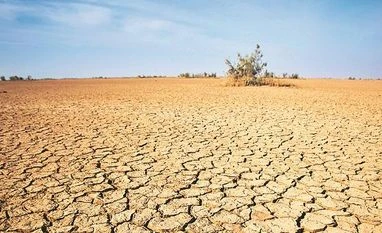What are the main conclusions of the Intergovernmental Panel on Climate Change (IPCC) report?
The latest report by the IPCC was commissioned by the 186 countries that are members of the UN Framework Convention on Climate Change. The panel of scientists were asked to explain the impact of global warming of 1.5 degree Celsius above pre-industrial levels and to suggest ways by which the global response against the threat of climate change could address the challenge while keeping the priorities of sustainable development and poverty eradication in mind.
The authors concluded that limiting global warming to 1.5 degree Celsius would require rapid, far-reaching and unprecedented changes. That said, limiting global warming to 1.5 degree Celsius compared to 2 degree Celsius, which is the current primary objective of the Paris Agreement, will bring clear benefits to people and natural ecosystems. For instance, by 2100, the global sea level rise would be 10 cm lower with global warming of 1.5 degree Celsius compared with 2 degree Celsius.
Going by past record, India along with other emerging countries, could be left to bear the burden of higher emission reduction targets without any financial support. Emission reduction demands diversion of resources from short- to medium-term growth-oriented policies towards long-term economic and environmental security — a trade-off for which each country has to find its own golden mean.
What are the positions of the US and the EU?
The US has informed the global community that it will leave the Paris Agreement by 2020 unless the agreement is altered to — what it believes is — its advantage. Till then, it continues to sit in the negotiations and push for changes to the pact from the inside. The EU has indicated that it might increase its existing moderate Paris Agreement targets and then, along with smaller developing and poor economies in a coalition, push the emerging economies to increase their targets as well — but without financial support.
What are the options before India at this point?
It is too early to say how India must respond to such pressures. A series of closed-door meetings before the main negotiations in December will help the key stakeholder countries get a sense of how everyone is positioning themselves ahead of the annual global climate change meeting due to be held in Poland in December. At that juncture India would need to finalise its response to the demands for upping the Paris Agreement targets before 2020.
Is there a possibility of some sort of consensus emerging?
A consensus is likely. No country likes to play spoilsport at the climate change talks and face opprobrium from the global civil society. What shape the consensus would take is hard to project at this juncture as countries begin early back-door discussions. But, very often in the past, a temporary consensus has been created at the climate talks by postponing the detailed decisions to a future date.
)
)

















